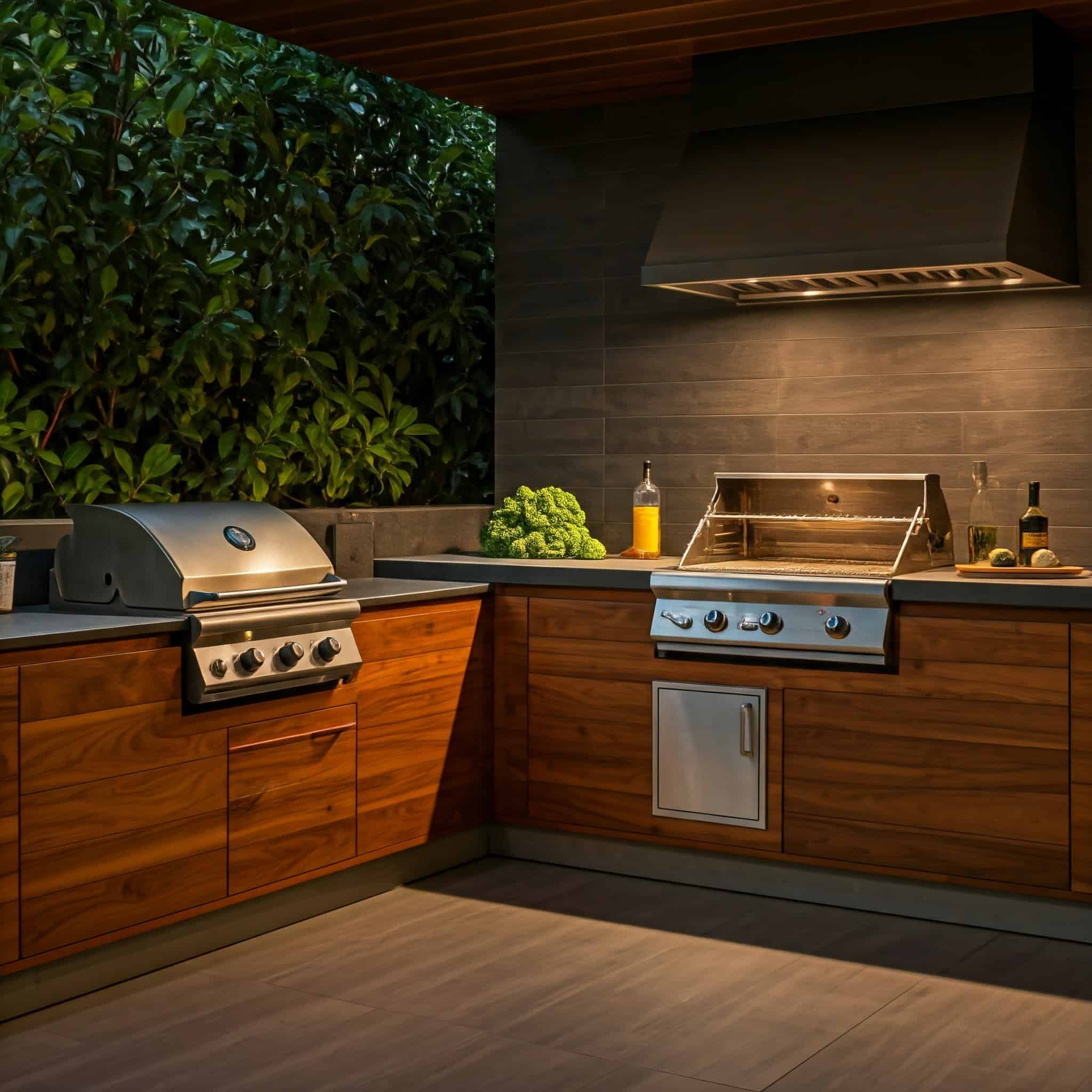
Question: How Long Do Outdoor Kitchens Last?
Answer: How long an outdoor kitchen lasts depends on materials and maintenance. Well-maintained, high-quality kitchens can last 10-15 years or longer. Lower-quality materials may only last 5-7 years.
Maximizing the Lifespan of Your Outdoor Kitchen
Outdoor kitchens offer homeowners a space for cooking and entertaining. How long do outdoor kitchens last? Many factors influence their lifespan. This article explores these factors, helping you make informed decisions for your outdoor kitchen investment. By understanding the key elements that impact an outdoor kitchen’s longevity, you can maximize its lifespan and enjoy it for years to come.
Material Selection: A Foundation for Longevity
Choosing suitable materials plays an important role in an outdoor kitchen’s longevity. Stainless steel appliances resist rust and weather damage, offering good value. Natural stone countertops, like granite, provide durability and aesthetic appeal. Concrete pavers and bricks offer strength and design versatility for the structure’s base. Selecting weather-resistant materials ensures a longer-lasting kitchen.
Stainless Steel:
The preferred choice for appliances. Its resistance to rust and corrosion ensures longevity in outdoor environments.Natural Stone:
Granite and other natural stones offer durability and beauty for countertops. They withstand heat and weather elements effectively.Concrete Pavers:
These materials offer a strong foundation for the kitchen structure, resisting ground shifts and providing design flexibility.
Click the link to read more about Blue Kitchen Refacing
Related Article: Can You Have an Outdoor Kitchen in Cold Climates?
Related Article: How Do You Weatherproof an Outdoor Kitchen?
Climate Considerations: Protecting Your Investment
Local climate conditions influence an outdoor kitchen’s lifespan. Harsh winters necessitate winterizing procedures. Extreme heat requires protection from direct sunlight. Coastal environments demand materials that resist salt corrosion. Understanding and adapting to your climate extends the life of your investment. Regular cleaning and maintenance further protect against environmental factors.
Winterizing:
Protecting your kitchen during harsh winters, including proper covering and water drainage, prevents damage.Heat Protection:
Shielding appliances and countertops from excessive sun exposure helps maintain their appearance and functionality.Coastal Environments:
Selecting materials resistant to salt corrosion ensures longevity in coastal areas.
Maintenance Practices: Preventing Premature Deterioration
Regular maintenance extends an outdoor kitchen’s lifespan. Cleaning grills and appliances after each use prevents buildup. Sealing countertops yearly protects against stains and weather damage. Inspecting and repairing minor damage promptly prevents more extensive problems. Consistent upkeep preserves the kitchen’s condition and extends its usable life.
Cleaning:
Regular cleaning of appliances and surfaces prevents grime buildup and maintains hygiene.Sealing:
Applying sealant annually to countertops protects against staining and weathering.Inspections:
Regular inspections allow for early detection of minor damage, preventing more costly repairs down the line.
Appliance Lifespan: Understanding Individual Component Durability
Different appliances have varying lifespans. Grills typically last 5-15 years, while refrigerators might last 10-20 years. Regular maintenance extends their functional life. Understanding the expected lifespan of individual components helps you budget for replacements and upgrades. This knowledge ensures you maintain a fully functional outdoor kitchen.
Grills:
Expect a lifespan of 5-15 years with proper care and maintenance.Refrigerators:
Outdoor refrigerators typically last 10-20 years depending on usage and maintenance.Other Appliances:
Other appliances like sinks and side burners have varying lifespans, influenced by quality and maintenance practices.
How Long Do Outdoor Kitchens Last? The Answer
An outdoor kitchen’s lifespan depends on the factors discussed: materials, construction, climate, maintenance, and appliances. With high-quality materials, professional installation, and regular care, it can last 15-20 years or more. By understanding these factors and actively addressing them, you can maximize your investment and enjoy your outdoor kitchen for many years to come. Addressing these elements proactively ensures the long-term enjoyment and value of your outdoor cooking space.
Conclusion
By considering these factors, homeowners can make informed decisions to ensure the longevity and enjoyment of their outdoor kitchens. Investing in quality materials and construction, combined with regular maintenance, maximizes the lifespan and return on investment. Understanding the expected lifespan of appliances and components allows for proactive planning and budgeting. By addressing these elements, homeowners can create a durable, functional, and beautiful outdoor kitchen that provides years of enjoyment and value.

Blue Malue Get in touch with Blue here.
